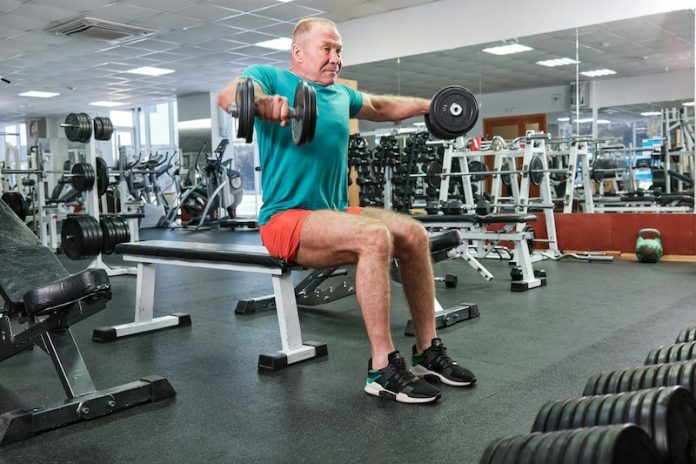
As we grow older, it’s common to notice that we’re not as strong as we used to be. Many people think this loss of muscle strength is just a part of getting older.
However, a groundbreaking study from Ohio University has brought a new perspective to this issue, suggesting that the problem might not be with our muscles but with our brain and nerves.
In a fascinating experiment led by Brian Clark, the team worked with 66 older adults in their 70s.
They wanted to see how strong these individuals were, particularly focusing on the muscles that straighten the leg. To do this, participants were asked to push against resistance with all their might.
What happened next was quite interesting. The researchers used electrical stimulation on the muscles that had just been tested.
If the muscle could push harder after being zapped, it meant the issue wasn’t with the muscle itself but with how the brain and nerves were telling the muscle to work.
The results were eye-opening. The participants who were not as strong to begin with showed a significant improvement in muscle strength after the electrical stimulation.
In fact, those who were the weakest saw their muscle strength increase by 14.2% – double the improvement seen in the stronger group.
This suggests that the brain and nerves, rather than muscle quality, play a big role in why older adults might feel weaker.
This study could change how we think about and treat muscle weakness in older people. Traditionally, the focus has been on strengthening muscles through exercise.
While staying active is crucial, this research suggests we should also be looking at how to keep the brain and nerves healthy.
For example, exercises that challenge balance could be particularly useful because they work on both muscle strength and nerve communication.
Additionally, future treatments might include ways to directly stimulate the nerves, helping older adults maintain their strength and independence longer.
Currently, the best advice for keeping muscles strong is to stay active. But as we learn more about the role of the nervous system in muscle strength, we might see new types of exercises and treatments that can help older adults feel stronger and more capable.
This study not only offers a new way to look at aging and muscle weakness but also opens the door to potential treatments that focus on the brain and nerves. It’s an exciting development that could lead to better quality of life for many older adults.
Published in JAMA Network Open, Brian Clark and his team’s research is a significant step toward understanding and improving muscle weakness in the elderly.
It highlights the importance of looking beyond the muscles themselves and considering the crucial role of the nervous system in maintaining strength and mobility as we age.
If you care about muscle, please read studies about factors that can cause muscle weakness in older people, and scientists find a way to reverse high blood sugar and muscle loss.
For more information about health, please see recent studies about an easy, cheap way to maintain muscles, and results showing these vegetables essential for your muscle strength.
Copyright © 2024 Knowridge Science Report. All rights reserved.



